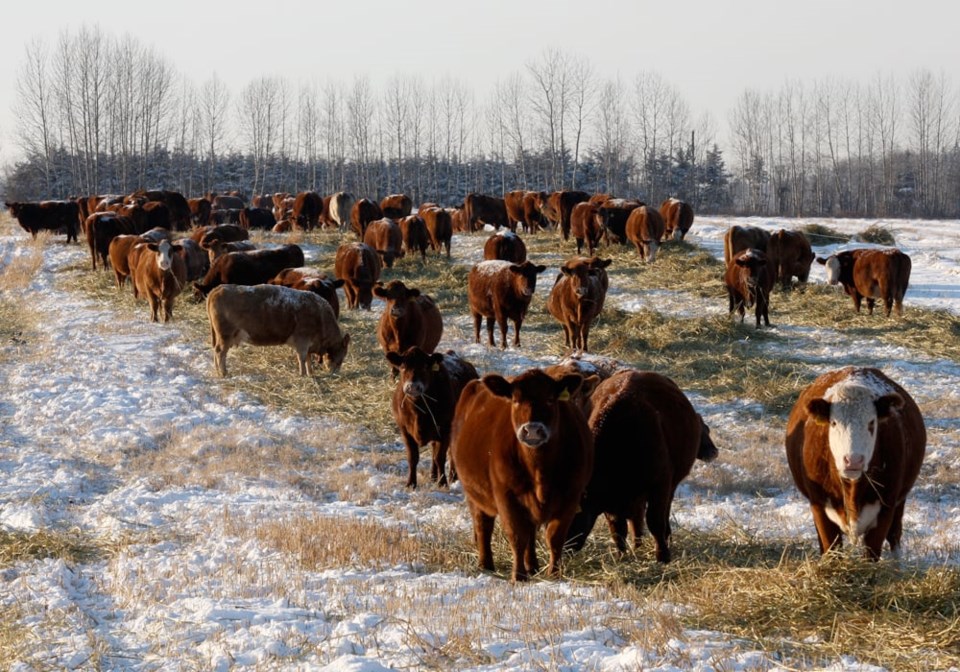WESTERN PRODUCER — A researcher is looking for cow-calf producers across Western Canada who want to take part in an online survey about swath grazing.
“We hope to capture information from about 500 or 600 beef producers about their experiences on swath grazing,” said Obioha Durunna, livestock research scientist at Lakeland College in Vermilion, Alta.
“We want to see what their motivations are for those of them that have engaged in it for quite a while and they’re enjoying it, and for some of them that have some hesitation or they’re hesitant to take on swath grazing, we want to know what’s the difference.”
Durunna hopes the survey will help researchers find solutions and supply information to producers to help them implement the practice where appropriate.
“We know that swath grazing is a relatively good way to save producers some money for those that it will actually work for,” he said.
“It might not be for everybody. Depending on where the person is, there are so many factors that affect the efficacy and how good it will fit into a producer’s operation.”
Swath grazing involves leaving swaths from annual cereal crops in fields for cattle to graze during winter. It can save beef producers time and money as well as lower greenhouse gas emissions by reducing the use of farm equipment, along with requiring less labour, manure handling and feed, said Durunna.
Some of the reasons farmers and ranchers aren’t adopting the practice can include problems such as the depth of snow. It can prevent cattle from grazing the swaths, forcing producers to look for alternative sources of feed, he said.
Other factors can include contamination of fields due to urination and defecation by wildlife such as deer and moose, causing cattle to avoid eating the swaths and wasting them as a source of feed, he added.
The online survey is being undertaken by Durunna, who is also an adjunct professor at the University of Saskatchewan, and Kathy Larson, who is a research associate at the university’s Department of Agricultural and Resource Economics. It can be accessed at .
An introduction to the survey mentions financial compensation for taking the survey but did not provide an amount.
The survey mostly consists of multiple-choice questions and will take producers up to 20 minutes to complete, said Durunna.
Researchers hope to get answers from up to 600 participants across Western Canada. The survey is part of a three-year project about swath grazing that’s being funded by the Results Driven Agriculture Research (RDAR) agency in Alberta.




